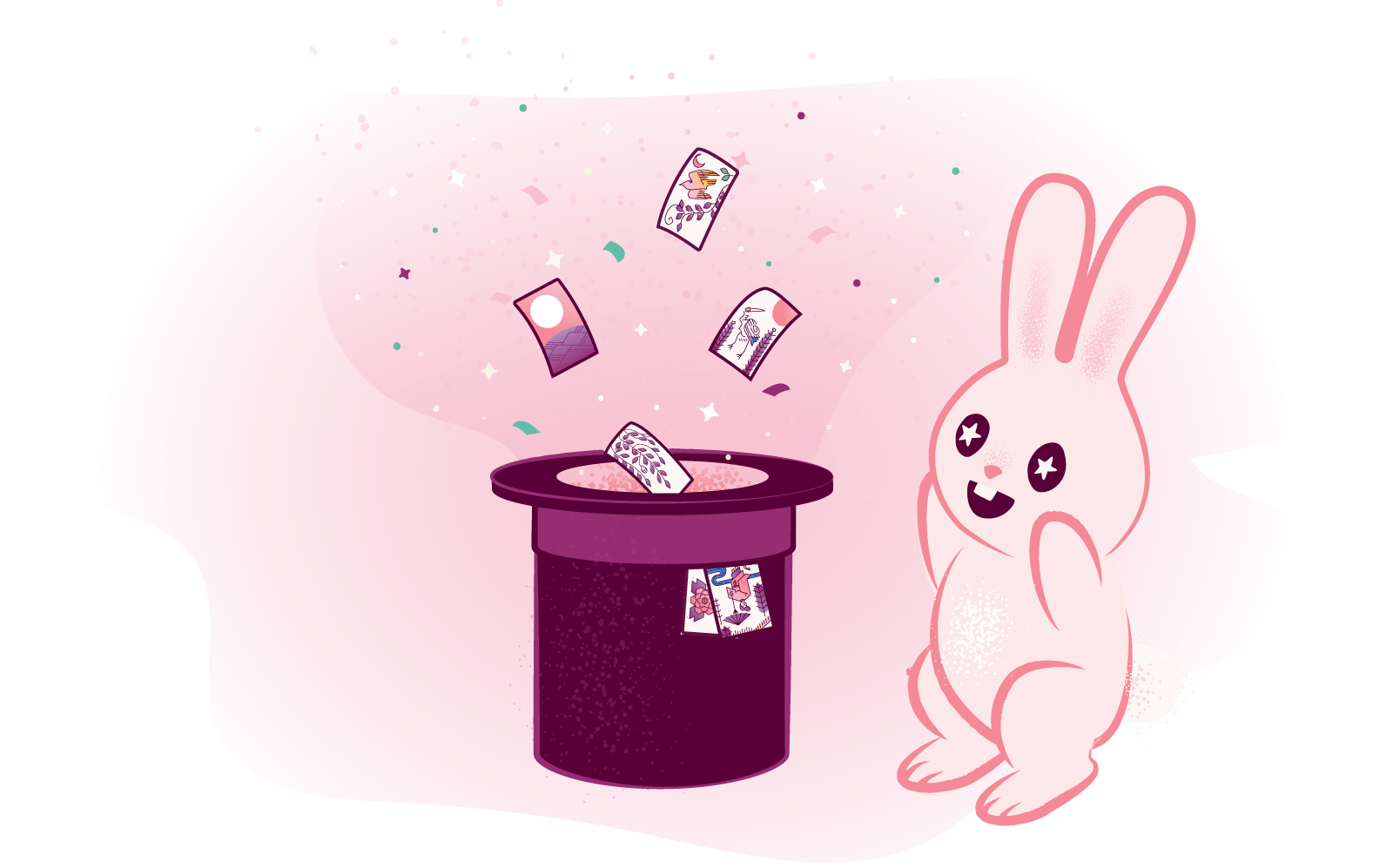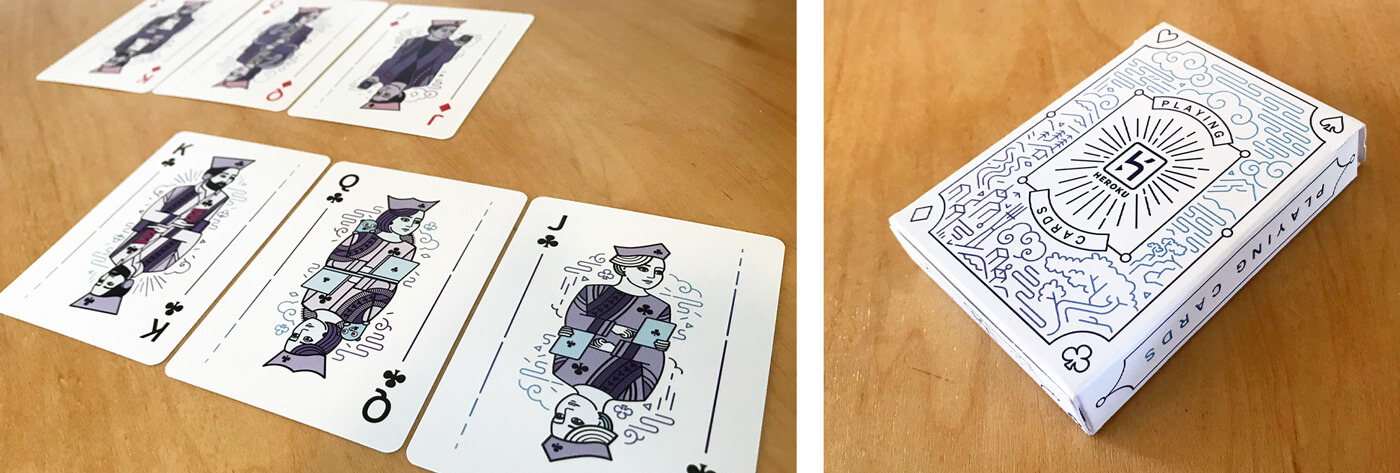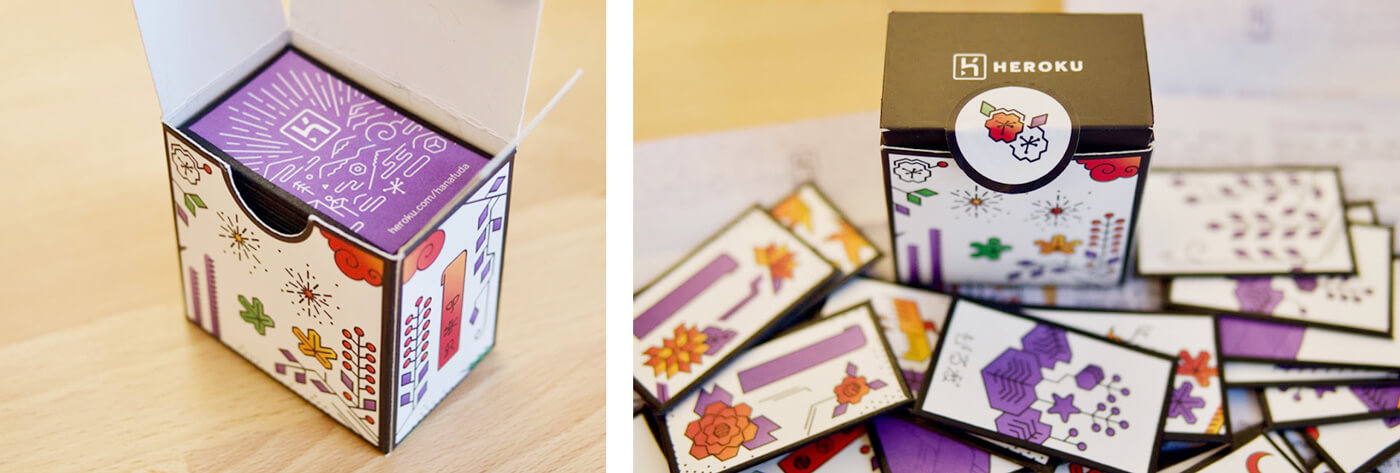Look for the tinkerers
The secret weirdo messages embedded in Heroku’s card decks

“The only secret of magic is that I'm willing to work harder on it than you think it’s worth.” –Penn Jillette
The companies that connect most meaningfully with their weirdos understand that it’s not their product their customers love — it’s what that product allows them to do.2
It’s not the LEGO bricks they love; it’s what they can create from them.
It’s not your software they’re obsessed with; it’s what they can do because of your software.
It’s not this website you’re excited about; it’s how you can apply these ideas in your work.
But of course, our products don’t always get them 100% of the way there. Software is always evolving, and ironing out bugs. This website will be updated with more content over the coming weeks, and — we hope — become more useful in the process. So a crucial part of your company’s relationship with your weirdos is establishing trust that you’re committed to growing in alignment with your customer’s goals.
This is tricky to do, and involves both:
- establishing sufficient confidence in your current product(s), and
- making sure your customers intuitively understand the qualities that drive your decision-making.
In other words: What do you stand for? What does your company care about?
These intangible qualities form a sense in your customers’ minds of what they can expect from you in the future, and they’re a key aspect of building loyalty.
We communicate these things all the time, usually without giving it any conscious thought. But what happens when you make these things conscious, intentional, and concrete?
You might get something like the playing card decks that Heroku made for some of their most cherished fans.
…
Why would one of the world’s biggest cloud application platforms devote time and energy to creating exquisitely crafted, custom-designed card decks to give away to software developers? It might be hard to imagine how a deck of playing cards could convey anything meaningful about a digital technology platform, but let’s look a little closer.
Coders are a huge, and massively diverse group — but Heroku’s niche weirdos are web and software developers with an appreciation for detail, and for well thought out design. They are most definitely tinkerers and craftspeople: the kinds of people who like things to be both beautiful and useful, and who place value in the tools of their trade. And their choice to build their work on Heroku’s platform is not one that the company takes for granted: Heroku knows that as tinkerers, those developers are experts in their own right, and deserve the very best tools.
So when Heroku wanted to show their appreciation for their weirdos, they set out to create something that would make them feel truly seen and celebrated. Not a product they would offer for sale, but a gift — something unique, meticulously crafted, and designed with the kind of thought and care that a devout tinkerer would invest. A way of saying, “We share your love of these qualities, and we want to show you just how deep our love goes.”

The cards were gifted to developers at Heroku events — a far cry from typical conference swag. And they were so beloved by recipients that two years later, Heroku decided to make a second deck, this time a reimagined Hanafuda (“flower cards”) deck.
This Japanese deck style has twelve suits, one for each month of the year, and each suit features a different flower. The choice of deck felt apt, since Heroku’s name and brand were intended to pay homage to Ruby creator Matz Matsumoto, and his Japanese heritage.
The Heroku and &yet teams invested huge amounts of time and research into designing the cards in a way that would respect traditional Hanafuda, while also bringing in elements of Heroku’s brand style, and some of the same kinds of subtle symbolic gestures that had been woven into the standard playing card deck — this time in the form of icons widely used in the Heroku interface. Anyone who uses Heroku regularly would recognize them immediately, but to a layperson, they’d be indistinguishable from the flower designs — a wink-and-a-nod decipherable only to Heroku’s weirdos.

A hundred understated details make these card decks a perfect weirdos offering: they’re a beautiful reflection of the qualities that coders cherish most about Heroku; they speak to insiders in ways that make them feel special; and they embody an element of surprise and generosity.
Add to that a sense that we’re being encouraged to log off, shuffle the cards, and play a good old-fashioned game of cards with some friends, and we really feel seen.
Questions to ask yourself:
- What are the qualities our company stands for, first and foremost?
- What are some ways we could create a gift for our weirdos that embodies those qualities?